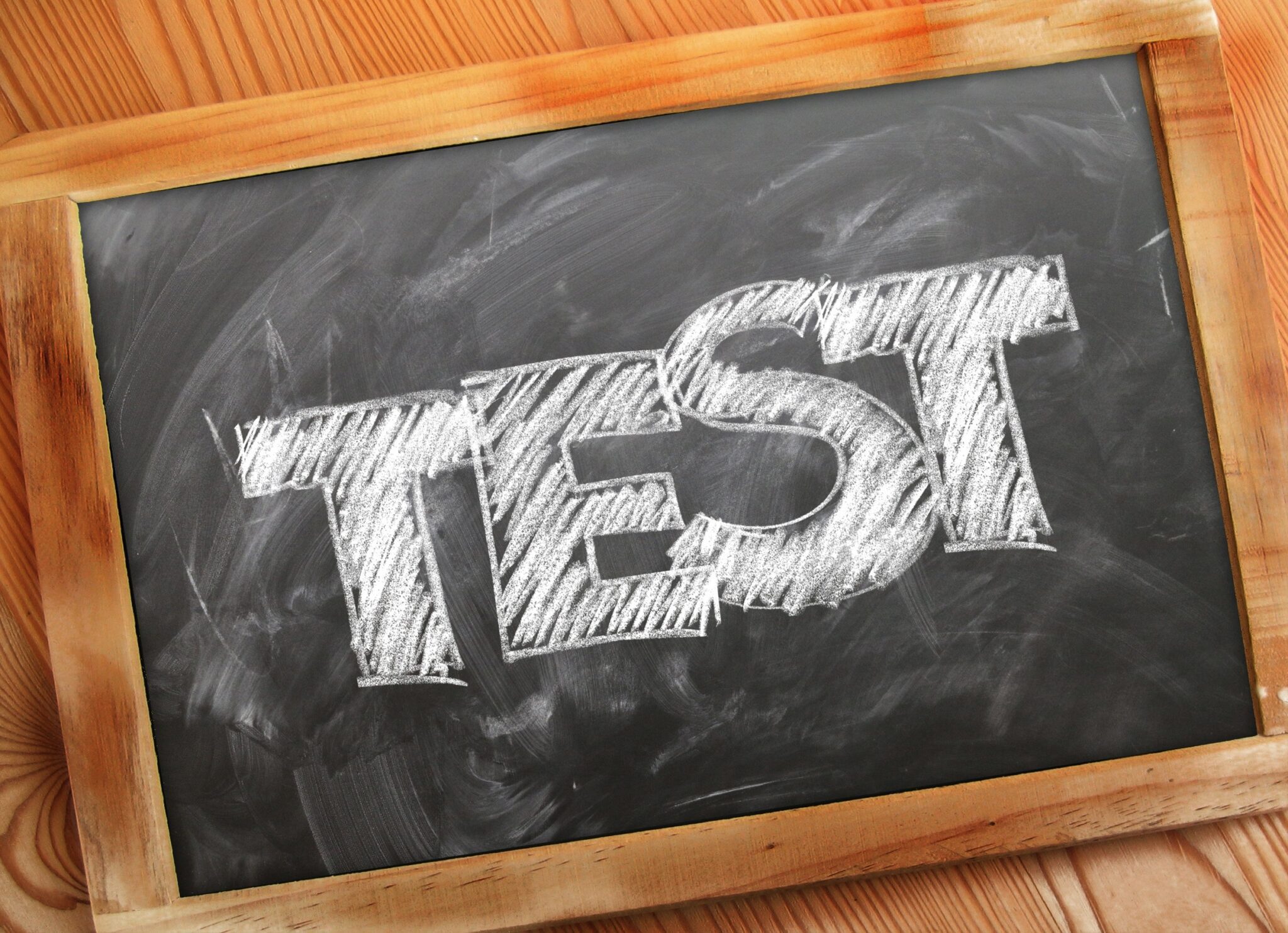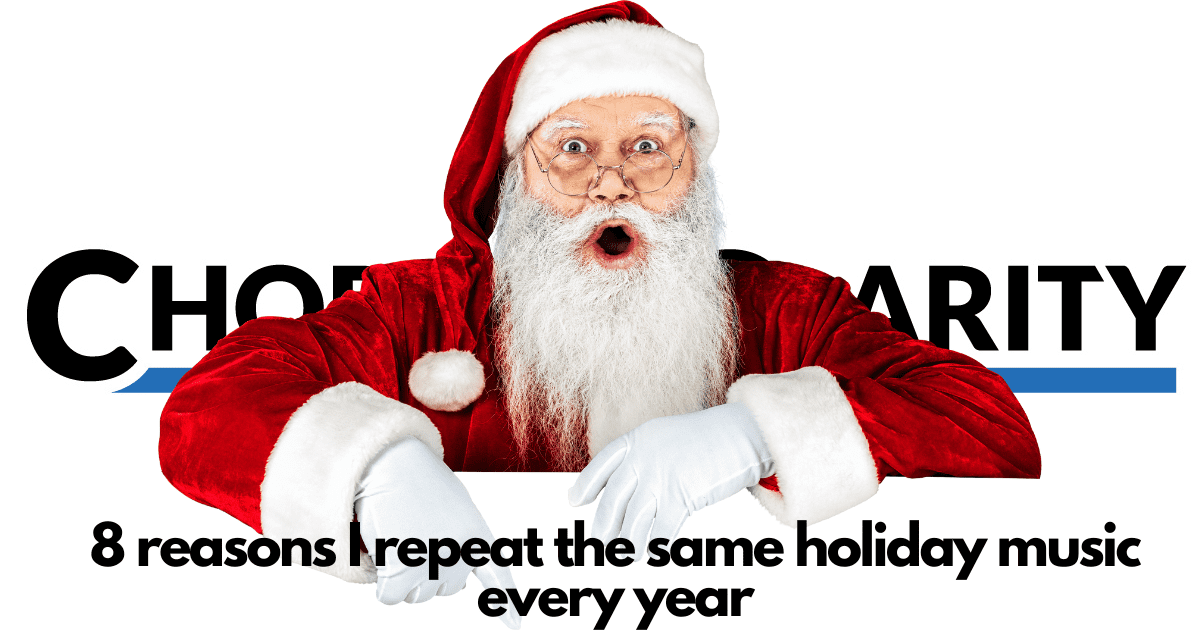As we get close to our concert, the pressure starts to mount. All of a sudden, we feel the stress of making the performance successful. As a result, we may begin to take it out on our students.
Here’s another approach.
Let’s share the ownership of our concert with our singers. When singers take responsibility for their own participation, we lessen our own responsibility. Certainly, with less responsibility, we will have less stress.
There are many ways we can accomplish this.
I’m going to list three ways and provide all the details you will need to be successful!
1. Record your rehearsals and require student feedback of their performance
The key element is HOW we get feedback and WHAT feedback we are looking for. With this exercise, we are trying to provide them with tangible information they can observe, explain and assess.
A clear rubric will direct and guide students toward providing specific feedback.
For each song, students can assess the following categories:
| -Tone – was overall sound of the group beautiful and consistent? |
| -Balance/Blend – were all voices and sections unified and appropriately distributed with sound? |
| -Vowels – were all vowels consistently aligned with beauty? |
| -Consonants – were consonants crisp and well articulated, with words that were easy to understand? |
| -Dynamics – did the ensemble exhibit a varied range of volume that enhanced the performance and supported the interpretation? |
| -Rhythmic Integrity – did the ensemble remain together rhythmically, including beginnings and ends of phrases, with consonants in the right place, and a steady pulse whenever intended? |
| -Phrasing – did the shape of the musical line create vocal expression and interest? |
| -Interpretation – was the style culturally and musically appropriate, sung with emotion, and easy to connect with? |
| -Visual Expressions/Stage presence – was the ensemble interesting to watch/connected to music, each other, the conductor, and the potential audience? |
If viewing a recording of an entire set, these collective categories could be used as well:
| OVERALL PERFORMANCE EVALUATION |
| -Ensemble entered the risers/stage professionally |
| -Ensemble exited the risers/stage professionally |
| -Ensemble was focused throughout the entire performance |
| -Ensemble remained professional in between performing each song |
| -Conductor was engaging, adding to the performance |
After filling out an evaluation, a class discussion could take place. As a result of the discussion, the entire ensemble could draw conclusions that may lead to heightened awareness and improvement in their performance.
2. Provide a pre-concert self-assessment rubric
In preparing for a concert, students need to know exactly what is expected of them during each daily rehearsal. There are both individual and group expectations. These expectations can clearly by taught to your students. As a result, they will be able to evaluate their own contribution to these final pre-concert rehearsals.
Here are categories they can self-assess:
| -I am on task and focused throughout the rehearsal |
| -I give 100% effort throughout the entire rehearsal |
| -I am focused immediately after a song ends, in order to maintain the rehearsal flow |
| -I give 100% effort during the daily warm-up immediately from the beginning of class |
| -I demonstrate proper body alignment when singing |
| -I demonstrate consistent eye contact when instruction is given |
| -I demonstrate consistent eye contact when singing |
| -I maintain an energetic disposition when performing |
| -I have memorized music/lyrics to ALL songs |
| -I maintain a positive and open-minded attitude toward all in-class activities |
3. Provide a post concert self-assessment rubric
A post-concert self-assessment must be taught prior to the concert. The goal is to prepare singers to understand what is expected of them at the actual concert. By explaining each and every aspect of the rubric, singers will have the opportunity to successfully meet these goals. Students need to evaluate both their individual performance and the collective performance of the ensemble.
Here are things they can prepare for and assess after the performance:
| INDIVIDUAL EVALUATION |
| -I was on time to the concert (arrived before the call time) |
| -I was fully prepared and dressed appropriately |
| -I was focused from the very start of the warm-up |
| -I demonstrated proper body alignment/posture throughout the performance |
| -I acted appropriately between songs during the performance |
| -I demonstrated consistent eye contact throughout the entire performance |
| -I conveyed a positive attitude on stage during the concert |
Try Sight Reading Factory and save 10% with checkout code: choralclarity
| ENSEMBLE EVALUATION |
| -Ensemble entered the risers/stage professionally |
| -Ensemble exited the risers/stage professionally |
| -Ensemble was focused throughout the entire performance |
| -Ensemble remained professional in between performing each song |
| -Ensemble sang with tall, refined vowels |
| -Ensemble sang with great usage of dynamics |
| -Ensemble sang with emotion/connection to the music |
| -Ensemble conveyed a positive attitude on stage |
| -Ensemble was respectful and professional when not performing |
Final Words
I realize it takes time to put these self-assessments and evaluations together. This is why I’ve created the ultimate concert assessment bundle and offer it at such a reasonable price!
If you would like all of these evaluations ready-made, we have them! You can get all of them in our ultimate concert assessment bundle for just $19.99. As a bonus, we also include the alternative concert assignment for students who miss the concert along with the ultimate concert checklist.
The ultimate concert assessment bundle includes all of the products listed below. Click on the individual links for the individual products:
- Pre-Concert Self-Assessment (editable) – for rehearsals leading up to the concert
- Post Concert Self-Asssessment (editable) – to evaluate a concert performance
- Video Performance Evaluation and self-assessment (editable) – to assess any recorded performance
- Alternative Concert Assignment (editable) – for students who cannot attend the concert
- Ultimate Final Week Concert Checklist – to prepare for an upcoming concert
I’m aware that every situation is different. For this reason, the concert assessment bundle offers full editing capabilities and unlimited usage is given within your choral program.
As I have noted, by purchasing the bundle, you will have a comprehensive concert checklist, several tools to give your students concert ownership, and a way to assess singers who miss the concert.
As a result, you will have a much less stressful concert season!














Leave A Comment